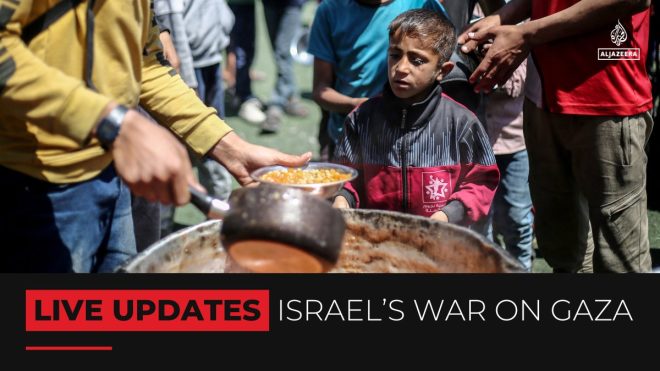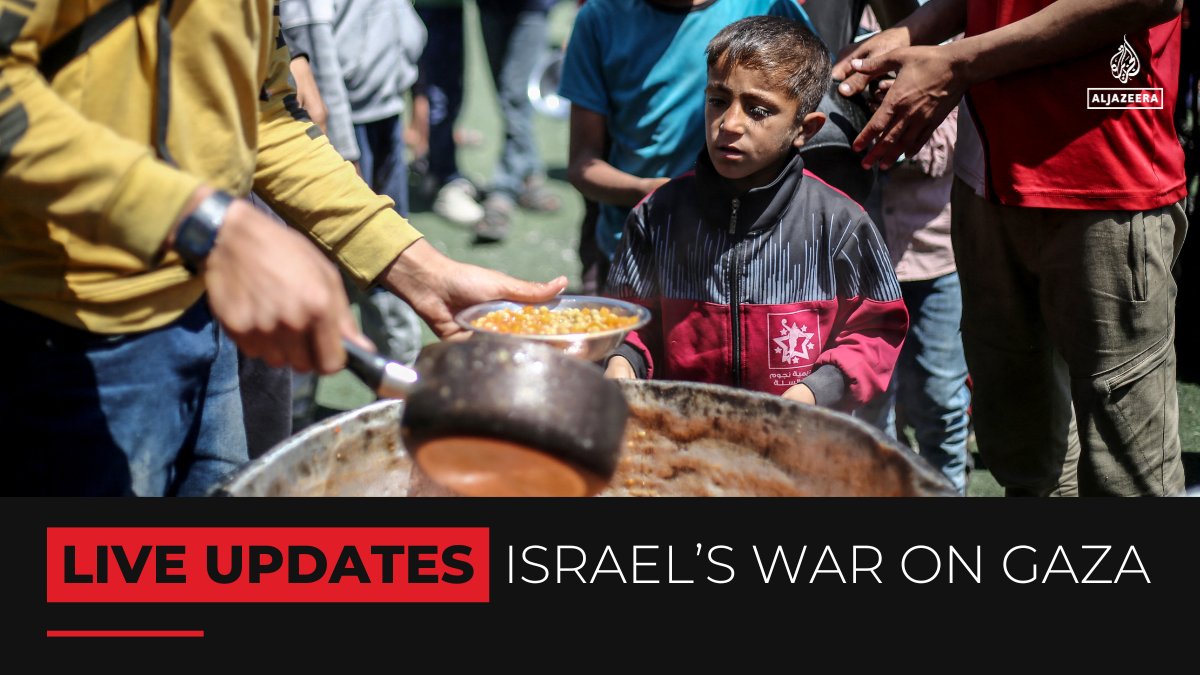
UNRWA Accuses Israel of Deliberate Starvation in Gaza Amid Aid Shortages
In a recent statement, the United Nations Relief and Works Agency for Palestine Refugees in the Near East (UNRWA) has raised serious concerns regarding the humanitarian crisis in Gaza, describing the situation as one of "man-made" and "politically motivated starvation." This alarming assertion comes as the United Nations’ World Food Programme (WFP) reports that aid stocks in the besieged enclave have been entirely depleted. The crisis in Gaza has escalated to unprecedented levels, with millions of individuals facing dire food shortages and a lack of essential supplies.
The Humanitarian Crisis in Gaza
The humanitarian situation in Gaza has deteriorated dramatically in recent years, exacerbated by ongoing conflict, blockades, and political instability. The region, home to approximately two million residents, has faced restrictions that have severely limited access to food, medical supplies, and other basic necessities. According to UNRWA, these restrictions are not merely a consequence of the conflict but are driven by political motives that have resulted in a systematic denial of resources necessary for survival.
UNRWA’s Accusations
UNRWA has emphasized that the actions taken by Israel are directly contributing to widespread hunger and suffering in Gaza. By characterizing the situation as "politically motivated starvation," UNRWA highlights the intentional nature of the blockade and restrictions imposed on the territory. The agency’s statements underline the critical need for immediate international intervention and support to alleviate the suffering of the Palestinian people.
World Food Programme’s Report
The WFP’s findings further corroborate UNRWA’s claims, indicating that aid stocks in Gaza have reached critically low levels. The complete depletion of food supplies poses an immediate threat to the health and well-being of the population. With the ongoing blockade and limited access to resources, many families are struggling to meet their basic nutritional needs. The WFP has called on the international community to provide urgent assistance to avert a humanitarian catastrophe.
- YOU MAY ALSO LIKE TO WATCH THIS TRENDING STORY ON YOUTUBE. Waverly Hills Hospital's Horror Story: The Most Haunted Room 502
The Role of International Aid
International aid has historically played a crucial role in supporting the people of Gaza. However, the current crisis has put immense strain on aid organizations and their ability to deliver essential services. The depletion of aid stocks signals a pressing need for an increase in humanitarian assistance and a reevaluation of the policies that govern aid distribution in the region.
The Political Implications
The accusations from UNRWA come at a time of heightened tensions and political maneuvering in the Middle East. The Israeli-Palestinian conflict remains a complex and sensitive issue, with deep-rooted historical grievances and ongoing disputes over territory and governance. The current situation in Gaza is not only a humanitarian crisis but also a political flashpoint that raises questions about the effectiveness of international diplomacy and the role of global powers in addressing the needs of vulnerable populations.
Call to Action
The global community must take decisive action to address the humanitarian crisis in Gaza. This includes advocating for the lifting of blockades, ensuring the free flow of aid, and holding accountable those responsible for exacerbating the suffering of civilians. Humanitarian organizations emphasize the importance of a coordinated international response to provide immediate relief and support long-term solutions that promote peace and stability in the region.
Conclusion
The situation in Gaza is dire, with UNRWA and the WFP issuing urgent warnings about the consequences of ongoing political and military actions. The characterization of the crisis as "man-made" and "politically motivated starvation" highlights the need for a concerted international response to address the needs of the Palestinian population. As the world watches, it is imperative that actions are taken to ensure that humanitarian aid reaches those in need and that the root causes of the conflict are addressed to pave the way for a sustainable and peaceful resolution.

UNRWA said Israel is inflicting “man-made” and “politically motivated starvation” on Gaza, as the UN’s World Food Programme reports that aid stocks in the besieged enclave are completely depleted.
Follow our LIVE coverage: https://t.co/YbGUDvE3Es pic.twitter.com/PdSy31gbM6
— Al Jazeera English (@AJEnglish) April 26, 2025
UNRWA’s Statement on Gaza’s Humanitarian Crisis
The situation in Gaza has reached a critical point, and the United Nations Relief and Works Agency (UNRWA) has made a stark declaration. They assert that Israel is inflicting “man-made” and “politically motivated starvation” on the people of Gaza. This alarming statement highlights the severe humanitarian crisis unfolding in the area, as the United Nations’ World Food Programme reports that aid stocks in the besieged enclave are completely depleted. The implications of these statements are profound and warrant a closer examination of the ongoing situation.
The Humanitarian Crisis in Gaza
Gaza has been under a blockade for years, leading to dire humanitarian consequences. The poverty rate has skyrocketed, and access to basic necessities such as food, clean water, and medical supplies is severely limited. According to reports, the UN has warned that the living conditions in Gaza are deteriorating, with a staggering percentage of the population relying on humanitarian assistance to survive. The depletion of aid stocks only exacerbates this issue, leaving many families in desperate need of support.
Understanding the Role of UNRWA
UNRWA plays a crucial role in providing humanitarian aid to Palestinian refugees in Gaza and other regions. Their services include food assistance, healthcare, and education. However, as the situation worsens, their capacity to deliver these essential services is being compromised. UNRWA’s statement regarding “man-made” starvation underscores the urgency of the crisis and the need for immediate international attention and assistance.
The Impact of Blockades and Restrictions
The ongoing blockade imposed on Gaza has had devastating effects on its economy and infrastructure. With limited access to goods and services, the local economy has collapsed, leading to soaring unemployment rates and poverty levels. Additionally, restrictions on the movement of people and goods have hindered the delivery of humanitarian aid, making it increasingly challenging for organizations like UNRWA and the World Food Programme to provide the necessary support to those in need.
The Role of International Organizations
International organizations, including the UN and various NGOs, have been vocal about the need for immediate action to address the humanitarian crisis in Gaza. They call for unfettered access to aid and a cessation of hostilities to allow humanitarian efforts to reach those who are suffering. The UN’s World Food Programme, in particular, has highlighted that the depletion of aid stocks is a direct consequence of the ongoing conflict and political decisions affecting the region. This raises critical questions about accountability and the responsibilities of various stakeholders in the crisis.
Voices from the Ground
Many individuals and families in Gaza are feeling the impact of these crises firsthand. Stories of struggle and resilience emerge daily, reflecting the human cost of the ongoing conflict. Families are forced to make difficult choices, often prioritizing food and water over other essential needs. The emotional toll on the population cannot be understated, as the constant threat of violence and scarcity creates an atmosphere of fear and uncertainty. By sharing these personal stories, we can better understand the urgency of the situation and the need for international solidarity.
The Importance of Awareness and Advocacy
Raising awareness about the humanitarian crisis in Gaza is essential. As individuals, we can use our voices to advocate for change and support organizations working to alleviate suffering in the region. Social media platforms and other communication channels provide opportunities to amplify these voices and share information about the situation. By engaging with this issue, we can help ensure that the plight of the people in Gaza is not forgotten and that their needs are addressed on a global scale.
What Can Be Done?
Addressing the humanitarian crisis in Gaza requires a multifaceted approach. International pressure on governments involved in the conflict is vital to encourage dialogue and a ceasefire. Additionally, increasing financial support for humanitarian organizations can help them deliver much-needed aid to those affected. Support for advocacy groups that focus on human rights and humanitarian relief can also make a difference in raising awareness and pushing for policy changes.
Continuing Coverage and Support
As the situation continues to evolve, staying informed is crucial. Following live coverage from reputable news sources like Al Jazeera can provide updates on the humanitarian situation in Gaza and the international response. Engaging with this content allows us to remain aware of the ongoing challenges faced by the population and the efforts being made to address their needs.
Conclusion
The humanitarian crisis in Gaza is a complex issue that requires urgent attention and action. UNRWA’s assertion of “man-made” and “politically motivated starvation” highlights the dire situation faced by many in the region. By raising awareness, advocating for change, and supporting humanitarian efforts, we can play a role in alleviating the suffering of those affected. The time to act is now, as countless lives depend on the global community’s response to this crisis.
“`
This formatted HTML article effectively addresses the ongoing crisis in Gaza, incorporating the key points raised by UNRWA and the UN’s World Food Programme. It encourages engagement and advocacy while providing a comprehensive overview of the situation.
Breaking News, Cause of death, Obituary, Today
